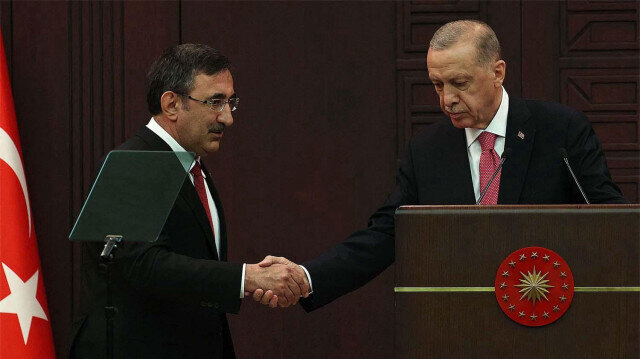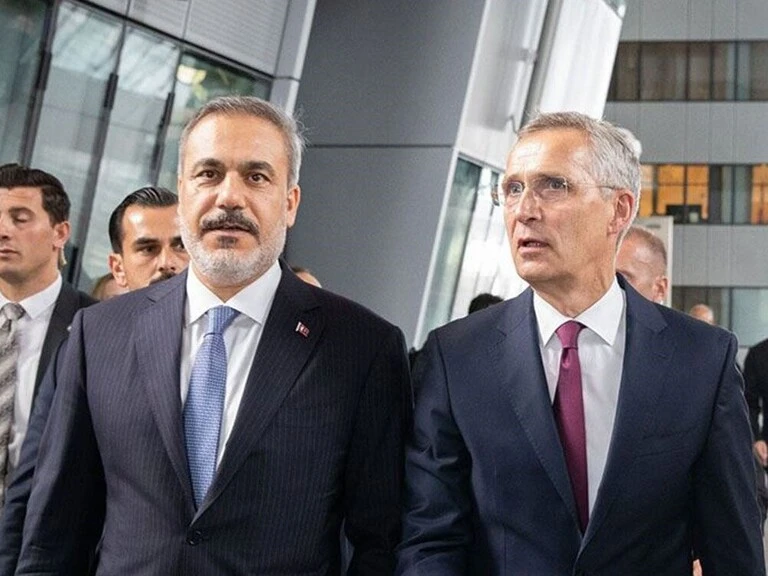Will the Medium Term Program Make Turkey Greater?
Will the Medium Term Program Make Turkey Greater?
26 September 2023 – Enes Özkan

On 6 September 2023, Vice President Cevdet Yılmaz announced the Medium Term Program (MTP), a three-year economic plan covering the period 2024-2026. The content of the program consisted of forecasts for the Turkish and world economy and macroeconomic targets. In this article, I will address Turkey’s institutional backsliding in the framework of the MTP and some facts that the drafters of the program ignored.
First, this program was not announced by the Ministry of Treasury and Finance. Although it is told that the program will be announced by the Ministry of Treasury and Finance, on the day the program was announced, we could only access it on the website of the Strategy and Budget Directorate of the Republic of Turkey. In fact, the program was not announced by the Minister of Treasury and Finance Mehmet Şimşek, but by Cevdet Yılmaz, the only deputy to the President. While this confirms that the Presidency of Strategy and Budget is a coordinating institution, it also reaffirms that ministries have been relegated to the background compared to the directories and boards under the Presidency. This once again emphasized that ministries, as independent actors, have no power in terms of strategic direction within the government and are more executive in nature. This unfortunately makes the institutional power of the Ministry appear lower than it actually is.
Secondly, I would like to remind you of something very grave that we have experienced before, so that we can better understand how the capacities and foresight of institutions in Turkey are diminishing. Turkey had announced three-year economic programs covering the years 2022-2024 on September 5, 2021 and 2023-2025 on September 4, 2022. In other words, new three-year programs were announced consecutively in 2021, 2022 and 2023. Thus, under the presidency of Recep Tayyip Erdoğan, we have three different economic programs for 2024, all of which contradict each other.
On the other hand, although institutional backsliding is an issue that needs to be constantly addressed, I think the main problem with the program is that it leaves out the solutions to the big problems. This brings us to the third problem with the program that I would like to highlight. The most important shortcoming of this program is that it does not include concrete steps for Turkey’s exit from the Gray List. At the end of 2020, Turkey enacted a law titled “Law on Preventing the Financing of the Proliferation of Weapons of Mass Destruction” on the recommendation of the Financial Action Task Force (FATF), of which Turkey is a founding member and whose secretariat is the Organization for Economic Cooperation and Development (OECD). The most important reason for this was that Turkey did not want to be put on the gray list by the FATF.
However, this law was passed by the parliament so erroneously that Turkey was immediately put on the gray list. The gray list is a global list of countries that do not have sufficient safeguards against money laundering and terrorism financing. In other words, Turkey is now seen as a country that does not fight against the financing of weapons of mass destruction and the financing of terrorism in accordance with international standards. This, of course, makes it very difficult for Turkey to integrate into the global financial system. It is also one of the obstacles that prevent credit rating agencies from rating Turkey as an “investment grade country”.
So why did this law go wrong? Unfortunately, corruption, lack of transparency and instrumentalization of the law are some of the factors at play here. In the draft law proposed by the FATF, the most important issue within the measures to be taken to prevent weapons of mass destruction was the oversight mechanisms for the financial accounts of politically exposed people (PEPs) and their relatives. However, the Turkish government sidestepped this issue in the final law, and instead emphasized the more peripheral issue of controls on non-governmental organizations (NGOs). In the end, Turkey did not escape the gray list.
The problems in the program tell us something important: Turkey is in a major institutional impasse, and some institutions are trying to start a new process to overcome it, albeit by necessity. But this process has started very weakly and is continuing very weakly. Economic predictability is very important for Turkey’s development since Turkey is struggling with capital scarcity. Turkey is a country with a savings deficit, and external funding is vital. Attracting foreign capital is only possible by establishing a predictable economic and legal order. The current situation seems to increase the risk for foreign investors who want to make long-term investments in Turkey.
 Turkish Political Scene After the Elections | By Burak Bilgehan Özpek, 26.09.2023
Turkish Political Scene After the Elections | By Burak Bilgehan Özpek, 26.09.2023
–
Will the Medium Term Program Make Turkey Greater? | By Enes Özkan, 26.09.2023
–
Highly Skilled Migrant: Melissa Vargas | By Osman Can Akdeniz, 26.09.2023
–
 EU Will Give Turkey Some Concessions But Under Some Conditions | By Barçın Yinanç, 26.09.2023
EU Will Give Turkey Some Concessions But Under Some Conditions | By Barçın Yinanç, 26.09.2023
–
 Where Inflation Brings Us: Saramago’s Mental Asylum | By Burak Bilgehan Özpek, 26.09.2023
Where Inflation Brings Us: Saramago’s Mental Asylum | By Burak Bilgehan Özpek, 26.09.2023

